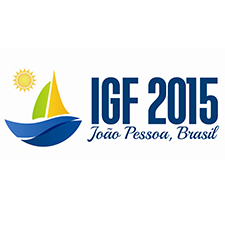IGF 2015 – Closing ceremony
13 Nov 2015 17:30h - 18:30h
Event report
The closing session was marked by general support in favour of the continuation of the IGF, and praise of its merits for cooperation. According to UNDESA, this year’s IGF was attended by 3,000 participants from over 100 countries. Based on the figures, this IGF may have been the most visited.
Besides applauding the IGF, US State Department Coordinator for cyber issues Chris Painter also reflected on the ongoing WSIS+10 process, thanking the UN reporters who joined the IGF in order to integrate its outputs directly.
The technical community underlined the importance of the IGF and its continuation. Izumi Okutani from the Japan Network Information Center and the Advisory Council of the Internet Society also outlined the success of the IANA stewardship transition process as an important example of multistakeholder cooperation. An accidental long pause in her speech, caused by a glitch with her speech notes, was a reminder of the new role – diplomatic and protocol-related – that the technical community needs to strengthen.
Most of the attention was on Nadine Moawad, renowned Lebanese civil liberty activist and a representative of the APC. In her inspiring and emotional speech, which triggered ovations by parts of the audience on several occasions, she warned that the Internet should be a facilitator of equality, yet in the past decade or two we are seeing even greater inequality. She called for full respect for human rights, with emphasis on freedom of speech. She said people had a right to express their opinion and to criticise those who were more powerful (such as governments and big corporations), but not weaker ones. She also referred to the need to allow protest banners at the IGF, such as those brought in this year by the Brazilian activists linked to the #freebasics campaign.
Jimson Olufuye, Chair of the African ICT Alliance (AfICTA), emphasised the crucial role of the Internet for development, and the importance of the IGF for mitigating the challenges – a position which was, according to him, evident among various stakeholders. He also underlined that it is essential for the IGF to continue being a place for sharing experiences and dialogue, unconstrained by text-based negotiations.
The youth representative, Ms Kimberly stood out in a positive way. She also recognised the value of the IGF, but emphasised that the youth should not be seen as the future – rather, it was important to realise that the younger generation was already there and needed to be involved even more.
Towards the end, on behalf of the organisers, Hartmut Glasser from CGI.br thanked everyone for participating and stressed that the whole endeavour was a result of full-time work of over 400 people. Yolanda Martinez from the Digital Government Unit of the Secretariat of Public Administration of Mexico expressed her country’s readiness to host the IGF in 2016 – providing, of course, that its mandate will be extended in December. She also expressed her hope to get more representatives from marginalised groups to participate in 2016.
By Vladimir Radunovic
Related topics
Related event

